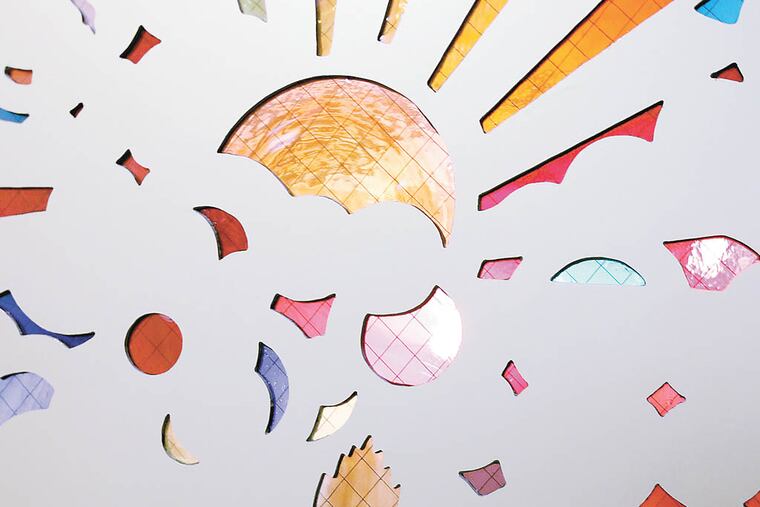At CHOP, a sacred space - and a God squad
When bad things happen to good people, a believer's faith can be rocked to the core.

When bad things happen to good people - "to innocent people, to children," said hospital chaplain Laura Palmer - a believer's faith can be rocked to the core.
Standing alongside patients and parents as they face the injustice of a childhood cancer or some other illness is part of the calling for Palmer and her colleagues on the chaplaincy corps at the Children's Hospital of Philadelphia, based at the hospital's interfaith Schlimm Center for Prayer and Reflection.
Clapping and cheering alongside staff from the medical wards when a very sick child gets well - and walks out the door - is also part.
Arranging for a sacrament to be performed . . . or a wished-for puppy to be delivered to a bedside. Those are a part of the job, too.
"We go in and we discover, as a blank slate, the things that bring meaning and joy, and find out where we fit in to nurture their spirit," said Millicent Wess, another CHOP chaplain.
Who we are: As the spiritual home for the sprawling hospital, the Schlimm Center and its chaplains serve patients, families and staff. The Schlimm team has four full-time chaplains, six chaplains-on-call and a retinue of visiting clergy that includes a rabbi, a Catholic priest and an Imam. (A fifth full-time chaplain works directly for the hospital's palliative care team serving children with life-threatening illnesses.)
Where we worship: The womb-shaped Schlimm Center, decorated sparely with stained glass and a fountain, is an interfaith space for prayer and reflection. Centrally situated near the cafeteria, it's a respite for both families and staff. It's open 24/7.
When the Daily News visited last week, a security guard was reading the Bible during a break. Not long afterwards, a staffer wearing scrubs arrived for Muslim prayer.
Along with holy books and prayer rugs, the center has a wooden box for prayer requests. Once a day, the chaplains meet to pray over the individual requests.
What we believe: Wess is a Baptist minister. Palmer comes from an Episcopal faith tradition. (And is, incidentially, a noteworthy author - she co-wrote Carolyn Jessop's story, "Escape," about fleeing a polygamist cult.) Barbara Gindhart, another full-time chaplain, is Catholic. Chaplain Rebecca Carl is a Jewish cantor.
But what any one chaplain believes, personally, is not the point. Clinical pastoral education (specialzed studies that go above and beyond a chaplain's divinity degree) teaches them to take an interfaith approach to their work - "to meet people wherever they are," Palmer said.
A chaplain's prayer: "I pray, 'Let me be where I can be of the most service,' " Palmer said. "I've been with children as life support is withdrawn. I've been with families in the everyday-ness of their lives."
"This work is a ministry of presence."
Wide world of faith: Philadelphia's diverse ethnic mix and the hospital's global clientele - 500 children from abroad are on the active patient roll, many from the Middle East - bring the chaplains to the bedsides of children who practice all the major world religions.
For quick reference, a spreadsheet outlining the tenets of 43 different faiths is taped to the back of the chaplaincy's office door. Twenty-one pages long, it covers the whole door, with four pages taped to an adjoining wall.
The city that loves CHOP back: One preschooler who lay dying asked one day for a puppy. The hospital's chaplains and social workers put out feelers, and the next day a woman from Manayunk was at the door with two dogs. "She wanted the mother to pick," Palmer said. "Those are the moments where God is - in just the extraordinary power of love."
God is ... Always present. "God is compassionate, understanding, forgiving, loving," Wess said. "God is everything we need God to be, but not always everything we want God to be."
Words of hope: " 'Hope' is a real complicated word," she said. "These are complex situations."
"I tell people they will get through this - not that they will get over it, but they will get through it."
Even when a young patient dies, the love that the child has created in family and friends goes on, Palmer said. "Love is stronger than cancer or diabetes or whatever."
"Cancer never wins," she said. "Love wins."